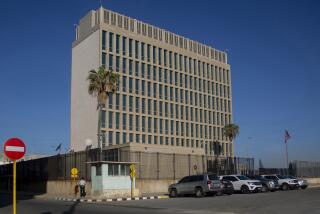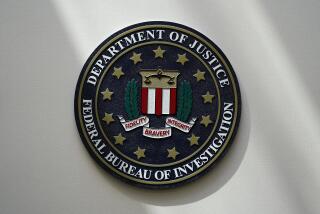Obama finally brings Cuba policy out of the Cold War darkness
If you are 53 or younger, you have never lived in a time when Cuba and the United States had diplomatic relations. With China, the communist giant, we’ve established normal relations. With communist Vietnam, our onetime enemy in war, we’ve established normal relations. But not Cuba.
That was until Wednesday, when President Obama finally took the step so many presidents and politicians knew should be taken, yet avoided because they feared a small number of very vocal, very passionate Cuban emigre voters in Miami would cause them big political trouble. Obama is not worried about that anymore, not only because he is never running for president again, but because his 50% share of the Cuban American vote in 2012 showed that minds were changing on the issue, even in that community.
Opening up to Cuba and reopening an American embassy in Havana has been a goal for the president since he first took office, but, for the last five years, he has had to wait for the release of U.S. Agency for International Development contractor Alan Gross, who had been imprisoned on suspicion of smuggling banned communications equipment into Cuba. Gross flew home Wednesday, and the creaky hinges of history began to move.
Back in 1961, trying to isolate revolutionary Cuba to bring down Fidel Castro’s regime may have seemed like a smart plan, but, a half-century later, the aged Castro brothers retain power. In international forums, the U.S. is now the isolated party. Nearly all the countries in the world have had direct dealings with Cuba for a long time. Americans have been the stubborn outliers.
After 18 months of secret negotiations with Cuba brokered in part by Pope Francis, Obama surprised pretty much everyone with his announcement. Supporters of the old policy were livid. Florida’s Republican Sen. Marco Rubio, the son of Cuban immigrants, declared that Obama had made “another concession to tyranny” and vowed to stand in the way of normalized relations. House Speaker John A. Boehner (R-Ohio) said, “Relations with the Castro regime should not be revisited, let alone normalized, until the Cuban people enjoy freedom – and not one second sooner.”
Though the president can unilaterally reestablish diplomatic ties and remove barriers prohibiting commerce and travel between the two countries, he cannot, on his own, end the half-century-old U.S. embargo on the island. Congress must do that, and the new Congress arriving in January will be run by the party of Rubio and Boehner. That does not bode well for any effort to lift the embargo, although the issue does not fall strictly along party lines. There are a number of Republicans who also believe a changed policy is needed.
Three U.S. senators accompanied Gross on his flight from Havana. One was Arizona Republican Jeff Flake, who supports the president’s action, saying lack of American engagement with Cuba has “done more ... to keep the Castro regime in power than anything we could have done.”
Though Fidel and his brother Raul, the current Cuban president, have done good things for their people in healthcare and literacy, they have always been, and remain, hard-fisted authoritarians who stifle debate and answer protests with prison terms. It would be premature and naive to think normalizing relations will quickly or easily lead to a flowering of democracy. That certainly has not happened with China or Vietnam.
Nevertheless, the Chinese are better off than they once were, as are the Vietnamese. Economic engagement has transformed both countries and raised expectations among the people. That, too, will happen in Cuba and, unlike, China and Vietnam, Cuba is not a vast ocean away from the United States. A mere 90 miles of water separate Cuba and Key West. The American presence will be felt; American culture and capitalism will begin to trickle in and, in time, become a strong current in Cuban life.
For those old enough to remember the corruption and crimes of the last American-backed government in Cuba, that may not be entirely reassuring. Nevertheless, after 50 years of Castro’s stifling social experiment, Cubans will welcome a new wind from the north.
More to Read
A cure for the common opinion
Get thought-provoking perspectives with our weekly newsletter.
You may occasionally receive promotional content from the Los Angeles Times.







